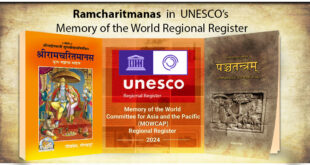Introduction
The Scheduled Tribes and Other Traditional Forest Dwellers (Recognition of Forest Rights) Act, 2006, popularly known as the Forest Rights Act (FRA), is a landmark legislation in India.
It aims to address historical injustices faced by Scheduled Tribes (STs) and Other Traditional Forest Dwellers (OTFDs) and empower them by recognizing their rights over forest land and resources.
Provisions of the FRA
The FRA recognizes four types of forest rights:
- Title Rights: This grants ownership rights to land cultivated by forest dwellers or STs for subsistence purposes, with a maximum limit of four hectares per family.
- Community Forest Rights (CFRs): This recognizes the rights of forest communities to protect, manage, and use community forests for various purposes, including harvesting minor forest produce, grazing, and non-timber forest products collection.
- Forest Land Use Rights: This grants rights to access and use non-timber forest products for livelihood needs, grazing areas for livestock, and access to water bodies within the forest.
- Other Forest Rights: This includes rights to habitat and biodiversity conservation, intellectual property rights over traditional knowledge, and the right to minimum support price for minor forest produce.
The Act also establishes a three-tiered grievance redressal mechanism at the Gram Sabha (village council), sub-divisional, and district levels to address claims and resolve disputes.
Challenges in Implementing the FRA
Despite its progressive provisions, the implementation of the FRA faces several challenges:
- Bureaucratic Hurdles: The complex claim filing process, coupled with a lack of awareness among forest dwellers and bureaucratic resistance, often delays or hinders rightful claims.
- Lack of Awareness and Resources: Many forest dwellers are unaware of their rights under the Act, and limited resources for legal aid and claim processing further disadvantage them.
- Conflicting Interests: The interests of forest departments, conservationists, and commercial entities can sometimes clash with the rights of forest dwellers, leading to disputes.
- Financial and Technical Constraints: The effective implementation of the FRA requires adequate financial and technical resources for capacity building, demarcation of forest boundaries, and development initiatives within forest areas.
Concerns and Debates
The FRA has also sparked debates regarding its potential impact on:
- Forest Conservation: Some conservationists worry that increased rights for forest dwellers could lead to deforestation and environmental degradation.
- Tribal Displacement: Concerns exist that commercial interests might exploit loopholes to displace tribal communities from their traditional lands.
- Livelihood Security: While the Act aims to improve livelihoods, ensuring sustainable income generation for forest dwellers through skill development and market access remains a challenge.
Benefits for STs and Forest Dwellers
The FRA offers significant benefits for STs and OTFDs:
- Recognition of Rights: The Act provides legal recognition to their historical dependence on forest land and resources, empowering them and fostering a sense of security.
- Improved Livelihoods: Access to and ownership of forest land enables them to improve their agricultural practices, harvest minor forest produce for income generation, and participate in sustainable forest management.
- Reduced Vulnerability: The Act protects them from eviction and displacement, promotes self-governance through CFRs, and empowers them to manage forest resources for their well-being.
- Preservation of Cultural Heritage: Recognition of their traditional knowledge and practices regarding forest use contributes to the preservation of their cultural heritage.
- Environmental Stewardship: When forest dwellers have a stake in the health of the forest, they are more likely to become stewards of the environment, promoting sustainable forest management practices.
To ensure the successful implementation of the FRA, several steps can be taken:
- Strengthening Awareness and Capacity Building: Extensive awareness campaigns and capacity building initiatives for both forest dwellers and forest officials are crucial.
- Streamlining Claim Process: Simplifying the claim filing process, providing legal aid, and ensuring transparency in claim adjudication can expedite rightful recognition of rights.
- Decentralized Governance: Empowering Gram Sabhas and strengthening their role in forest management decision-making can promote participatory governance and address local needs effectively.
- Convergence with Other Schemes: Convergence with existing tribal welfare schemes and livelihood development programs can enhance the impact of the FRA in improving the lives of forest dwellers.
- Monitoring and Evaluation: Regular monitoring and evaluation of the Act’s implementation are essential to identify bottlenecks and ensure its effectiveness in achieving its objectives.
By addressing the challenges and ensuring effective implementation, the FRA has the potential to empower STs and OTFDs, promote sustainable forest management, and contribute to a more equitable and just society.
 Chinmaya IAS Academy – Current Affairs Chinmaya IAS Academy – Current Affairs
Chinmaya IAS Academy – Current Affairs Chinmaya IAS Academy – Current Affairs

